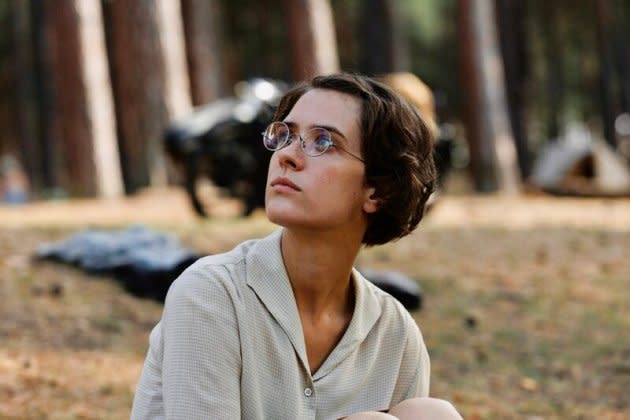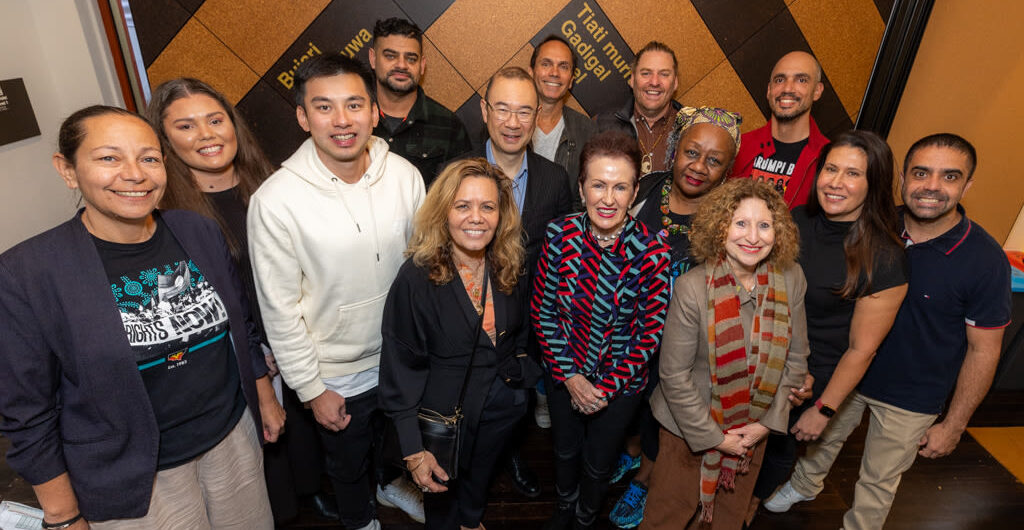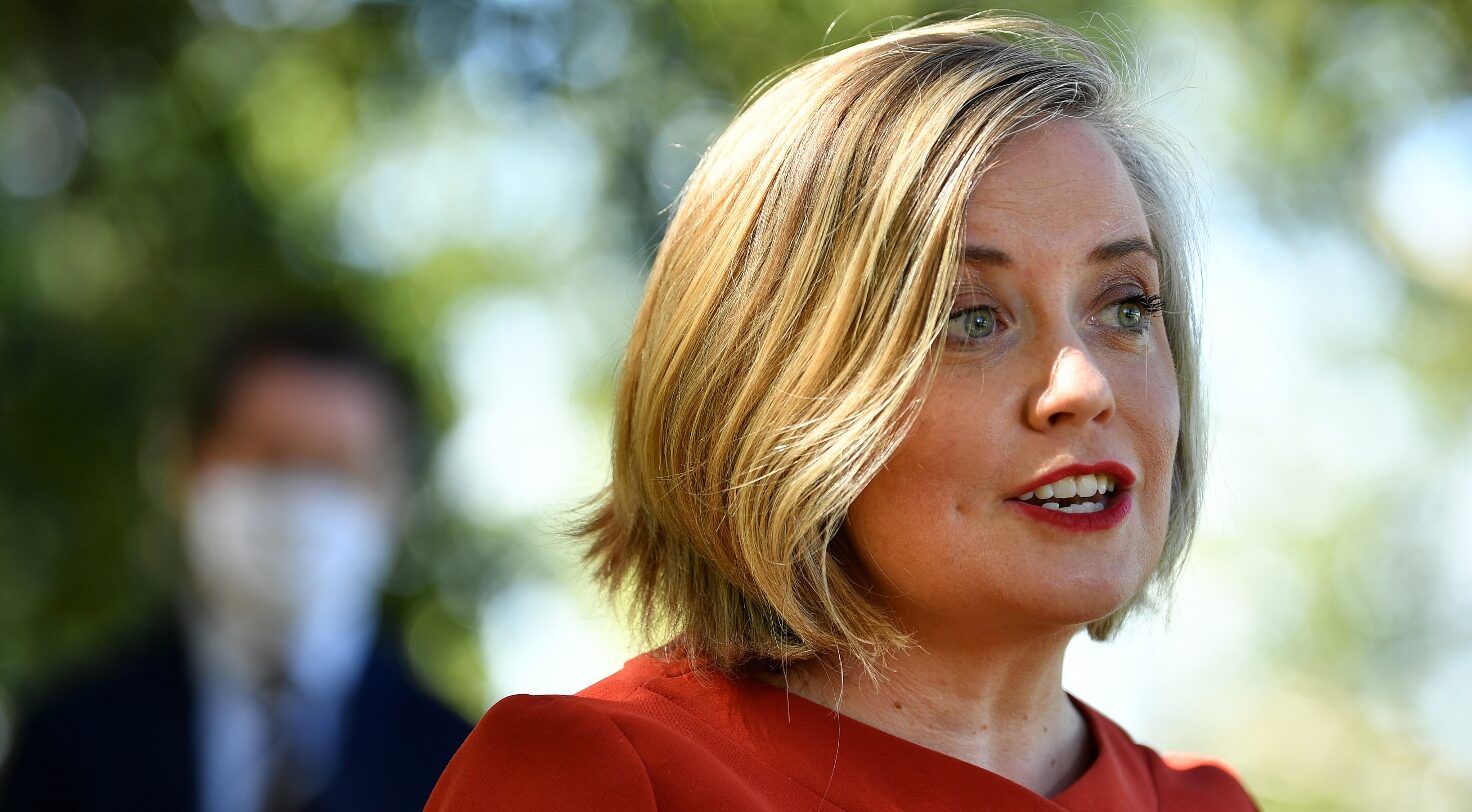
The launch-pad
There were no TV cameras at the campaign launches of two minor parties last week. Only a sprinkling of print and radio journalists turned up to The Greens’ national launch in The Rocks and the Australian Sex Party’s drugs policy launch in Kings Cross.
Compared to the much-televised stage productions of the big parties, these were simpler affairs, the candidates mixing freely with the crowd – a few hundred at The Greens’ do, while a few journos, outnumbered by the candidates, listened to the Sex Party in a small function room in the Holiday Inn.
The messages from the two parties had a lot in common, but their styles contrasted. The Greens projected as a serious party which might hold the balance of Senate power by this weekend, and the Sex Party crossing its fingers, if not its legs, hoping to get a blonde bombshell with a brain the size of a planet into the upper house.
The Greens go grass-roots
Candidate for Sydney Tony Hickey MC’d the Greens function, introducing Senate candidate Lee Rhiannon, who recently resigned as a state MLC to tackle a difficult-to-win NSW Senate seat, last held by Kerry Nettle. Election demographics make NSW the most difficult state for anyone to challenge the major parties in the Senate. Ms Nettle won it by an unusual preference distribution, then lost in the last election; and Ms Rhiannon may also depend heavily on preferences to succeed.
The expected message about climate change was there, but Ms Rhiannon focused on Grass-roots democracy, one of her party’s four basic principles.
“Grassroots campaigning is alive and well in NSW,” she said, listing some examples:
“The transport campaigners working for commuter rail services on closed rail lines in northern NSW; Traditional Indigenous owners campaigning with forest activists to protect their sacred sites and the southeast native forests; Unionists working for safer workplaces and to protect workplace rights; Teachers fighting for the funds needed to build world class public education; Farmers on the Liverpool Plains committed to saving their farm-land and waterways.”
“These are some of the people I want to represent.”
She contrasted these community-based campaigns with the big-end-of-town focus of the major parties. Her Democracy4Sale project has changed political discourse in Australia, detailing the big corporations and interest groups who pour money into the Labor and Liberal camps. This has provided journalists with a ready source of information to link government decisions to the interests of developers, coal miners, the liquor industry and other big players.
Politicians both state and federal have responded by making noises about reform to electoral funding rules and disclosure, but so-far it has all been “window-dressing”.
So it’s no surprise, says Ms Rhiannon, that big party policies reflect the interests of these groups.
“Plans to reduce NSW’s greenhouse pollution, which makes up 27 per cent of the nation’s carbon emissions, are dangerously off course,” she said.
“NSW remains firmly in the grip of the powerful polluting coal industry.
But coal is not the only dirty fuel the state plans to burn for power.
“The generation of electricity from burning NSW’s south-east native forests is backward. Power stations fuelled by native wood should be unacceptable under any credible renewable energy scheme. It would destroy biodiversity and is totally unsustainable,” said Ms Rhiannon.
Her message stands in stark contrast to the clean green energy image of Labor advertisements.
Sex party does drugs

It’s headlines like these that the Sex Party relies on for media cut-through. But after speeches from the candidates covering an impressive list of civil rights, I asked President Fiona Patten why they didn’t call themselves The Civil Liberties party.
“Because you wouldn’t be here if we did,” was the instant reply. I demurred, but looking around at the tabloid hacks also attending, I could see her point.
Ms Patten presented the Party’s Drugs Policy, which is based on Portugal’s decriminalisation in 2001 of all drugs for personal use. Since then drug use has reduced overall, and HIV transmission has halved among drug users. Falling short of regulated legalisation, it is similar to The Greens’ policy, which leaves commercial dealers to face the full penalty of the law.
Barbi meets Marylin meets feminism
Miss Zahra Stardust, 27, AKA Marianne Leishman, is the Sex Party’s lead NSW Senate candidate, a champion pole-dancer, stripper and Miss Nude Australia contestant. And she looks the part, an instant luminous presence when you enter the room even when she is standing quietly in a corner.
She is all pink and blonde, Barbie meets Marylin with a big ring piercing her lower lip. Everyone wanted their picture taken with her.
But when she spoke, there was a reality warp.
This pole dancer has a law degree specialising in immigration law, human rights, law and gender and anti-discrimination law. She interned in the Northern Territory with the Kimberly Land Council, and volunteered in Eritrea with UNIFEM, the UN development fund for women.
There she ran reproductive health campaigns, working with faith-based organisations to rescue women suffering from obstetric fistula. This is a debilitating condition where the membrane between the vagina and bowel punctures during childbirth. Easily stitched up in western countries, it often remains untreated in poor countries, resulting in odorous infections and incontinence. Sufferers are stigmatised and separated into leper-like colonies outside their village, leading a life of misery because of this treatable condition.
Back home Ms Leishman has worked with the Aboriginal Women’s Legal Centre in Marrickville dealing with domestic violence and sexual assault.
She left law when her performance career took off, but is doing an MA in Gender Studies. Her thesis is on Striptease as a gender-subversive activity.
“I like to challenge preconceptions when I’m performing,” she said.
OK, how do you do that?
She cites the acts at Girlesque, a lesbian strip club in the inner west.
“One performer dressed as John Howard and stepped on an Aboriginal flag before stripping,” she said.
“Backstage is a good opportunity for pedagogy and learning – when you are all sitting around naked it’s easy to talk about body image.”
“Pole-dancing defies notions of women’s passivity and docility. It’s about athleticism and strength, being able to hold your whole-weight in the air from one leg, upside-down.”
This is not classic feminism. When stripping for a bunch of men, how does she reconcile the feminist resentment of being seen as a sex object while being happy to give them a thrill?
“I do find it a bit confusing,” she admitted.
“But demanding dollars for sex is a political act – it shows men don’t have unlimited access to women’s bodies.”
She challenges sexual stereotypes in her work.
“One venue will insist that performers wear high heels while another will demand that your hot-pants are not too small and sexy. I objected when Picture magazine tried to airbrush out my underarm hair. It’s about challenging preconceptions.”
She is pleased there is now a men’s division in pole-dancing competitions.
Her party’s school sex-education policy focuses on gender identity, sexual health and issues of consent and how to negotiate permission for sex.
by Michael Gormly









